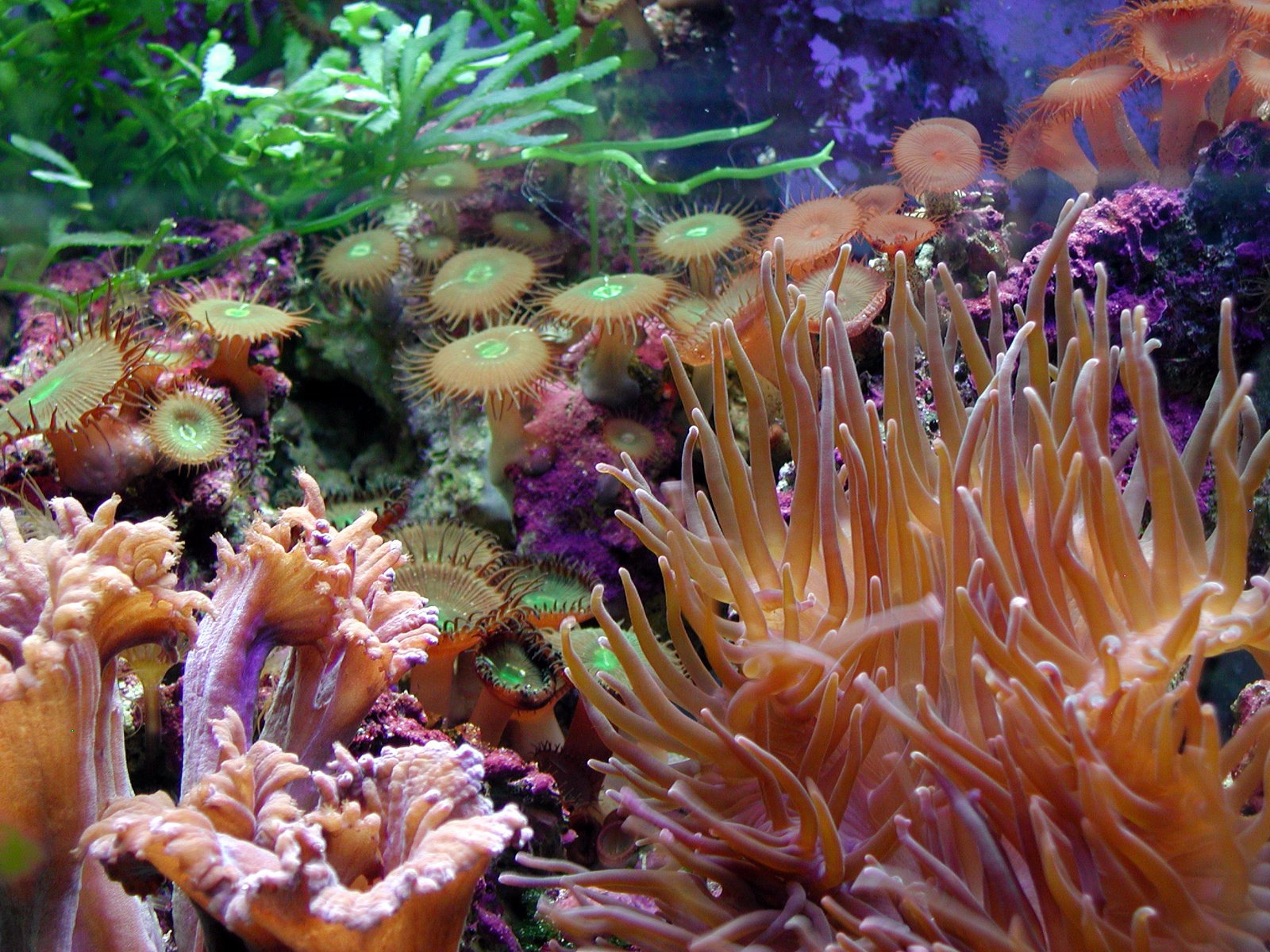
Aquatic organisms of this type have simple reproductive and vegetative functions and structures compared to other species. They live in aquatic environments such as oceans, estuaries, rivers, lakes, and ponds. Some types can be found in snow and soils while others live in symbiosis with lichens or fungi. Some aquatic species are attached while others are free-floating. Cyanobacteria, also known as green-blue algae, are prokaryotic organisms (bacteria) while algae are eukaryotic meaning that they have cells containing organelles and a nucleus.
There are different uses and potential applications in light of the fact that this is one of the most genetically diverse group found on Earth. According to scientists, they have helped create an oxidizing atmosphere on Earth in the early stages of life formation. In the process of producing organic matter, cyanobacteria release oxygen into the atmosphere. Many types use nitrogen fixation to produce usable forms of nitrogen as well. Some types of bacteria are used in biotechnology, as a fertilizer, and as a food source.
Blue-green algae for example, are rich in proteins and essential vitamins. In fact, green-blue algae such as Spirulina are packed with nutrients such as niacin, inositol, folic acid, cobalamin, and choline. They also contain biotin and ascorbic acid and minerals such as manganese, magnesium, iron, iodine, and germanium. Spirulina is also a good source of minerals such as chloride, calcium, and boron. It is also an excellent source of amino acids such as glutamine, aspartic acid, glutamic acid, and arginine. Products that contain green-blue algaе offer multiple health benefits and are used to alleviate the symptoms of depression, anxiety, fatigue, and stress. According to some studies spirulina-based products also aid weight loss and alleviate PMS. The reason is that certain substances contained in Spirulina have antibacterial, antidiabetic, anti-allergic, anti-inflammatory, antioxidant, and antiviral properties. Spirulina is also good for heart health according to some studies. There are potential applications in pharmacy as well, because cyanobacteria are capable of producing substances that have anti-cancerigenous, antibiotic, and antifungal properties. They also produce strong toxins. Some types such as Oscillatoria, for example, can be used as an indicator of pollution levels.
Ecosystem Health and Blooms
Cyanobacteria and algae, in general, are a food source for snails, insects, zooplankton, and other species. Large colonies are also the home to small animals. They help sustain ecosystem health. The presence of some forms indicates favorable conditions and nutrient-rich waters. The presence of others indicates the opposite. Under certain conditions some forms proliferate and form blooms. They are known to affect ecosystems and water treatment plant functioning.
Treatment Methods
Different treatment methods are used, including biological inactivation, chemicals, physical removal, and others. The treatment method depends on the specific toxin released by different forms of cyanobacteria. Chemicals are often used, including hydrogen peroxide, copper sulphate, and others. That being sad, some forms are more beneficial (contribute to ecosystem health) than others. Some chrysophytes, diatoms, and cyanobacteria produce unpleasant odor, toxins and taste compounds. These substances cause water to taste and smell bad.
More on the subject can be found here.

The University of Waterloo is a Canadian institution of higher education that offers graduate and undergraduate programs. A public research university established in 1957, the university has 10 faculty-based schools and 6 faculties.
Undergraduate Programs
There are six faculties that offer undergraduate programs - Mathematics, Environment, Engineering, Arts, Science, and Applied Health Sciences. Prospective students can choose from a number of programs and courses, including biochemical engineering, applied language studies, economics, classical studies, management sciences, and many others. A degree in Economics, for example, helps students learn about basic finance concepts and offers the option to choose a specialization. There are three options, Econometrics, Public Policy, and Financial Economics. Students choose from a wide selection of core curriculum and elective courses such as money and banking, principles of economics, economics of sport, and introduction to international economics. A degree in Biology offers students the chance to learn about the evolution, origin, function, and structure of living organisms. Students are free to choose from different areas of specialization, including plant biology, molecular biology, environmental biology, etc. In addition to core curriculum courses and electives, students benefit from field trips, tutorial sessions, and labs. Students are offered a major and minor in biology and can choose from a long list of courses with a focus on biotechnology, biochemistry, biomedical sciences, etc.
A degree in Medieval Studies explores a number of topics and historical events such as the fall of Jerusalem, the rise of Islam, the Hundred Years War, the Crusaders, and many others. There are different career options for students who complete the program. They can work as school teachers and museum curators. Archive management and restoration is also a career path for graduates. The program offers a wide selection of courses with a focus on ancient philosophy, Roman history and literature, the medieval society, and Roman architecture and art, among others. A degree in Conflict and Peace Studies is a great choice for those who wish to learn more about violence and non-violence, conflict resolution, social justice, human rights, and development, and culture and religion. Internship courses are available, with exciting opportunities for international and domestic placements. Core courses focus on restorative justice, negotiation, war and peace, mediation, peacebuilding, and a lot more. Other programs for students to look into include Italian Studies, French Studies, English Studies and Literature, and Science and Aviation, among others.
Graduate Studies
The University of Waterloo also offers PhD and Master's Degree programs across faculties and departments. The School of Accounting and Finance, for example, offers different options to prospective students, including PhD in Accounting, Master of Taxation, Master of Quantitative Finance, and Master of Accounting. The department of Chemical Engineering also offers different programs with a focus on coursework and research, including doctoral and Master's programs. Students can choose from a Doctor of Philosophy, Master of Engineering, and Master of Applied Science. The History Department features graduate programs as well, including PhD and Master' programs. The M.A. program offers excellent career opportunities in the fields of teaching, government services, journalism, politics, law, and business. There are three options to look into - MA thesis and coursework, research paper and coursework, or coursework only. Teaching assistantships are also available. Students are free to choose from part-time and full-time studies. PhD students benefit from professional development seminars and field seminars to get field training.
Cooperative education programs are also available, which combine work experience with course load. Affiliated institutions include the St. Paul's University College, St. Jerome's University, and Renison University College.
Visit our Sponsor
Smartborrowing.ca has recently published helpful articles about https://www.smartborrowing.ca/pros-and-cons-of-debit-cards/ and https://www.smartborrowing.ca/best-high-interest-savings-accounts-in-canada/.